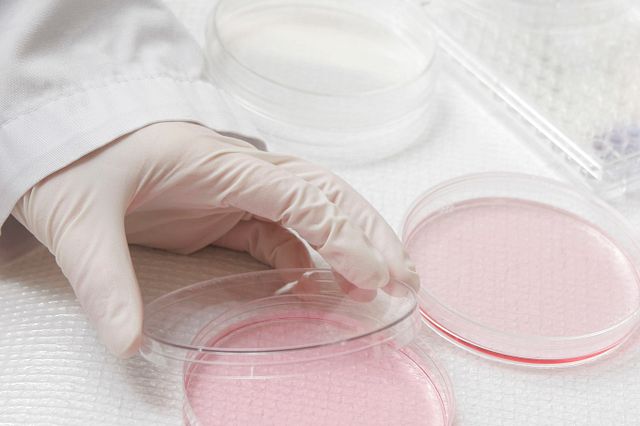ISO 10993-1 Biological Evaluation of Medical Devices – General Requirements
The International Organization for Standardization (ISO) publishes a series of standards to ensure the safety and effectiveness of medical devices. ISO 10993 is specifically dedicated to biocompatibility testing, which evaluates whether a device can be safely used in contact with human tissues without causing harm. The first part of this standard, ISO 10993-1:2018, outlines the general requirements for biological evaluation of medical devices.
This service provides comprehensive support to ensure compliance with these stringent standards. Our experts guide you through every step of the process, from initial consultation to final report submission. Understanding the implications and complexities involved in ISO 10993-1 testing is crucial for any quality manager or compliance officer overseeing medical device development.
Biocompatibility evaluation involves multiple tests designed to assess potential adverse effects on human health due to interactions between a medical device and biological tissues, fluids, cells, or whole organisms. These tests are essential because they help ensure that the materials used in manufacturing do not cause irritation, inflammation, allergic reactions, toxicity, or other harmful responses.
Our team specializes in providing detailed guidance on how best to approach this critical aspect of medical device development. From selecting appropriate test methods according to ISO 10993-1 requirements to interpreting results accurately, we offer tailored solutions that meet regulatory expectations and industry best practices.
The scope includes not only the biocompatibility aspects but also covers other important considerations such as sterilization effects on material properties, storage conditions, and compatibility with human tissues. Our expertise ensures that all relevant factors are addressed comprehensively during the evaluation process.
Our laboratory adheres strictly to international standards including ISO 10993-1:2018, ASTM F713-16a, EN ISO 14155-1:2017, and others relevant to biocompatibility testing. We use advanced instrumentation such as scanning electron microscopes (SEM), optical profilers, and Fourier transform infrared spectroscopy (FTIR) for precise analysis.
When preparing specimens for testing, our technicians follow strict protocols to ensure consistency and accuracy in sample preparation. This includes cutting samples into standard sizes, preparing extracts from materials if necessary, and ensuring that all biological media used are free from contamination or interference with the test results.
| Applied Standards |
|---|
| ISO 10993-1:2018 |
| ASTM F713-16a |
| EN ISO 14155-1:2017 |
The results of our evaluations are presented in clear, concise reports that comply with regulatory requirements. These documents provide a comprehensive summary of the biological evaluation performed, including any identified risks and recommendations for mitigating them.
Our commitment to excellence extends beyond just meeting current standards; we continuously monitor changes in regulations and guidance documents to ensure our clients remain compliant as new information becomes available.
Applied Standards
- ISO 10993-1:2018 – General Requirements for Biological Evaluation of Medical Devices
- ASTM F713-16a – Standard Guide for Biological Evaluation of Medical Device Materials
- EN ISO 14155-1:2017 – Clinical Investigation of Medical Devices – Part 1: General Principles and Requirements
Environmental and Sustainability Contributions
In addition to ensuring the safety and effectiveness of medical devices, our laboratory also plays an active role in promoting environmental sustainability. By adhering strictly to ISO 10993-1:2018 standards, we minimize waste generated during testing processes while maintaining high-quality results.
We employ eco-friendly practices throughout our operations, from efficient energy consumption to proper disposal of hazardous materials. Our aim is not only to meet but exceed regulatory expectations in every aspect of biocompatibility evaluation.
Competitive Advantage and Market Impact
- Achieving compliance with ISO 10993-1:2018 ensures that your product meets global regulatory requirements, opening up markets worldwide.
- By conducting thorough biological evaluations early in the development cycle, you can identify potential risks quickly and address them before they become costly issues later on.
- The rigorous nature of our testing procedures helps establish trust with healthcare providers who value transparent communication about a product’s safety profile.
- Our expertise allows you to stay ahead of competitors by being well-prepared for upcoming regulatory changes and trends in biocompatibility research.





